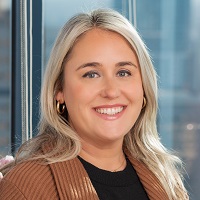How to Find a Financial Adviser
Choosing the right financial adviser for you is a very personal decision, not to mention critical for long-term financial success. Knowing where to look to find an adviser is key, too.


Profit and prosper with the best of Kiplinger's advice on investing, taxes, retirement, personal finance and much more. Delivered daily. Enter your email in the box and click Sign Me Up.
You are now subscribed
Your newsletter sign-up was successful
Want to add more newsletters?

Delivered daily
Kiplinger Today
Profit and prosper with the best of Kiplinger's advice on investing, taxes, retirement, personal finance and much more delivered daily. Smart money moves start here.

Sent five days a week
Kiplinger A Step Ahead
Get practical help to make better financial decisions in your everyday life, from spending to savings on top deals.

Delivered daily
Kiplinger Closing Bell
Get today's biggest financial and investing headlines delivered to your inbox every day the U.S. stock market is open.

Sent twice a week
Kiplinger Adviser Intel
Financial pros across the country share best practices and fresh tactics to preserve and grow your wealth.

Delivered weekly
Kiplinger Tax Tips
Trim your federal and state tax bills with practical tax-planning and tax-cutting strategies.

Sent twice a week
Kiplinger Retirement Tips
Your twice-a-week guide to planning and enjoying a financially secure and richly rewarding retirement

Sent bimonthly.
Kiplinger Adviser Angle
Insights for advisers, wealth managers and other financial professionals.

Sent twice a week
Kiplinger Investing Weekly
Your twice-a-week roundup of promising stocks, funds, companies and industries you should consider, ones you should avoid, and why.

Sent weekly for six weeks
Kiplinger Invest for Retirement
Your step-by-step six-part series on how to invest for retirement, from devising a successful strategy to exactly which investments to choose.
Whether you are looking for the first time or interested in changing who you work with, figuring out what to look for and where to look for a financial adviser can feel overwhelming.
When evaluating the top factors to consider, people commonly point to someone who gets good investment returns or who has a lot of credentials or experience. These are indeed important aspects, but your search should go beyond that if you want to end up with a great long-term relationship.
Not all advisers are created equal. Though I’m not an adviser myself, I have nearly 20 years’ experience in the wealth management industry, and I work very closely with our firm’s advisers. I have come to recognize how important it is to find the right fit, especially because choosing an adviser is a very personal decision and critical to your long-term financial success. This article will explain how you should start your process and where to look for information about advisers.
From just $107.88 $24.99 for Kiplinger Personal Finance
Become a smarter, better informed investor. Subscribe from just $107.88 $24.99, plus get up to 4 Special Issues

Sign up for Kiplinger’s Free Newsletters
Profit and prosper with the best of expert advice on investing, taxes, retirement, personal finance and more - straight to your e-mail.
Profit and prosper with the best of expert advice - straight to your e-mail.
First, why should you hire a financial adviser?
An important first step to finding the right adviser for you is understanding why you need one in the first place. It helps to be really clear on this before you begin your search. Did something happen in your life that made it obvious you need help, such as an unexpected inheritance or a divorce? Are you planning for a big event, such as retirement, and want to see if you are financially ready to make this transition? Or maybe you’re a careful planner yourself and simply want to ensure you’ll be able to reach your long-term goals with a step-by-step plan.
Maybe you recently lost or changed a job unexpectedly? We know it’s counterintuitive, but this is the time to lean in — transitions are critical!
The list is endless: There are lots of reasons to seek out an adviser’s help, and understanding why you personally need one will help tailor your search. Some firms are better than others at providing different solutions. Wealth management firms offer a variety of services, from detailed savings plans over decades to personal advice on buying a home or various ways to invest a recently inherited large sum of money.
A good adviser should be able to advise you on any big financial decision in addition to managing the details of your portfolio. If you have a more specialized need, like selling your small business or going through a divorce, there are advisers who specialize in these topics, so it’s important you seek them out.
Evaluate key skills and characteristics
When evaluating advisers, a top criterion should be: Do they listen to me? This might surprise you, but it’s actually the most critical component of a successful relationship. You want your adviser to know your current situation and what your short-term and longer-term goals are so that your planning is based on those personal factors. If they’re not digging in to hear where you stand, how can they suggest the right path forward?
Here are some questions to ask yourself when evaluating your conversation with an adviser:
- Did you feel like your questions were answered? If not, then maybe they were not listening well enough and might miss things in the future.
- If you are part of a relationship — did both individuals feel heard and did they both contribute to the conversation? If not, then maybe it’s time to evaluate other advisers.
- Did the adviser uncover detailed things about how you think, your passions, your family and those things most important to you? If they stayed surface level with age, income and assets, then I might reconsider how in-depth they will go with their planning.
There’s no one-size-fits-all in planning. You will want your relationship to feel right, for you as well as any significant other who may be involved. For example, if you don’t understand something, such as all of the different investment options, your adviser should be willing to explain them to you to the degree you feel comfortable — so that you can have a good understanding of their use in your portfolio. You should also feel comfortable enough asking questions, so meeting in person or speaking on the phone is important to see how well you “jive” with someone.
A personal experience backs up the comfort factor
You’ll also want to feel comfortable that the adviser is willing to step up and respond to your individual needs. Here’s an example: A couple of years ago, we contemplated having my husband make a transition from full- to part-time work. Our adviser ran a series of analyses on our income and his pension options. We decided not to make a change, but it sure was helpful to have that sounding board of someone who listened to us and then came back with different options.
Other critical skills to consider when choosing an adviser might be a little more obvious. You definitely would want someone who is knowledgeable about both planning strategies and investments, who is constantly learning and staying current with new solutions and strategies and, finally, who can be flexible. Life can be crazy sometimes, so they should be ready to adjust your plan when those curve balls land.
Here’s another example: We had sold our house unexpectedly — it wasn’t planned, but we got an unsolicited offer we couldn’t pass up. With a 30-day closing right before Christmas, my husband and I had to pivot quickly, deciding to rent. Our adviser helped us evaluate tax consequences, what to do with our next down payment and how to invest our excess savings. With our adviser being available and offering multiple factors to consider, we felt confident in our big decisions.
Consider certifications — and legal obligations
Various designations can lend insight into what type of experience an adviser has, and a good place to start is finding a Certified Financial Planner® (CFP). Having this designation requires these professionals to continue to learn, as they have mandatory hours of education each year — and they are regulated by a board of ethics.
And while we’re on the topic of ethics: Fiduciaries are required by law to put your interests before their own. In addition to that, a subset of fiduciary firms are fee-only, which means they don’t sell any products or services beyond their relationship with you and act as a fiduciary in all parts of their business. The word fiduciary gets used incorrectly all the time, but a true fiduciary has very few conflicts of interest, with all decisions made in the client’s best interest. For me, these two criteria — being a CFP and a fiduciary — should be nonnegotiable when choosing an adviser.
There are many other types of advisers out there, though — some work for broker-dealers, banks or even insurance companies. Just make sure you evaluate how they work with clients and how they get paid. Some advisers earn a commission from services they sell, which can be a red flag if you feel any pressure during your conversation to add on or upgrade your initial request. Or they may suggest an investment that isn’t perfect for your situation because they receive a higher payout on that specific investment — there is a level of conflict of interest to consider!
Where to look for a financial adviser
There are a number of good places to look for advisers. Here are several that I’ve found handy over the years:
- CFP Board. The CFP Board also lists vetted advisers — you can sort by criteria such as location, gender, etc. Everyone on this list will have that CFP designation I mentioned earlier, which means regular training and updated education.
- NAPFA.org. NAPFA (The National Association of Personal Financial Advisors) is a key resource for finding advisers who are vetted and fiduciaries. This is also a good option if you prefer to work with an adviser only on projects or on an hourly basis — such as a one-time financial plan, an insurance review or maybe a 401(k) allocation check. NAPFA only has fee-only advisers available.
- Rankings. Many reputable organizations provide rankings. For example, CNBC’s Top 100 Advisors List curates a list of the top advisory firms. They evaluate companies based on compliance record, years in business, AUM, etc. The firms that do make the list can also be a little smaller and thus have less marketing and advertising budgets, but they can offer tailored services, company cultures and advisers. The best thing to do is check out their websites and see if their approach and type of planning/investing matches with what you are thinking.
- Word of mouth. Talk to people you trust or deem successful. They may have an adviser they would recommend. Ask them specific questions about how their adviser helped them or why they think they’re a great adviser. This can be a great resource if you’re looking for a local adviser whose office you want to visit, but it’s important to remember the adviser who worked with your brother through his divorce maybe not be the best person for you if you’re looking to start a business.
Not ready to commit?
If you aren’t ready to make a decision or want some extra time to get to know a company or an adviser, try getting on their mailing list. Most firms have a newsletter or updates that they send out periodically. These newsletters usually contain advice on what to be planning for or thinking about now and in the future.
Also, check out their websites, as new content might be produced there frequently — whether it be a new article, video or even information about an upcoming event. These communications will enable you to know how an adviser thinks about planning and investing, what they do when markets get crazy and, overall, who they are as a company.
Choosing the right adviser is a critical step in your financial success. There are many more factors to consider other than just good returns or their familiar name.
You also don’t have to stick with the same adviser the rest of your life. If something isn’t working, and you lose your confidence in their ability to guide you through your life course, don’t hesitate to start the search over again.
But the more you know going into the process, the better your outcome will be.
Halbert Hargrove Global Advisors, LLC (“HH”) is an SEC registered investment adviser located in Long Beach, California. Registration does not imply a certain level of skill or training. Additional information about HH, including our registration status, fees, and services can be found at www.halberthargrove.com. This blog is provided for informational purposes only and should not be construed as personalized investment advice. It should not be construed as a solicitation to offer personal securities transactions or provide personalized investment advice. The information provided does not constitute any legal, tax or accounting advice. We recommend that you seek the advice of a qualified attorney and accountant.
Related Content
- What’s Standing in the Way of Your Successful ‘Money Mindset’?
- Is Your Financial Adviser Doing a Good Job for You?
- Eight Times You Should Contact Your Financial Adviser
- Can I Hire a Financial Adviser to Manage My 401(k)?
- Should I Pay a Financial Adviser an Assets Under Management Fee?
Profit and prosper with the best of Kiplinger's advice on investing, taxes, retirement, personal finance and much more. Delivered daily. Enter your email in the box and click Sign Me Up.

Kelli Kiemle holds multiple roles with Halbert Hargrove. As Managing Director of Growth and Client Experience, she sets the tone for the quality and character of Halbert Hargrove's client service relationships. She also manages the associate wealth advisers. Kelli is also responsible for overseeing the firm's wide-ranging marketing and communications initiatives, including their mentor program. She is also the Co-host of Halbert Hargrove's Fearless Money Talks podcast.
-
 The New Reality for Entertainment
The New Reality for EntertainmentThe Kiplinger Letter The entertainment industry is shifting as movie and TV companies face fierce competition, fight for attention and cope with artificial intelligence.
-
 Stocks Sink With Alphabet, Bitcoin: Stock Market Today
Stocks Sink With Alphabet, Bitcoin: Stock Market TodayA dismal round of jobs data did little to lift sentiment on Thursday.
-
 Betting on Super Bowl 2026? New IRS Tax Changes Could Cost You
Betting on Super Bowl 2026? New IRS Tax Changes Could Cost YouTaxable Income When Super Bowl LX hype fades, some fans may be surprised to learn that sports betting tax rules have shifted.
-
 The 4 Estate Planning Documents Every High-Net-Worth Family Needs (Not Just a Will)
The 4 Estate Planning Documents Every High-Net-Worth Family Needs (Not Just a Will)The key to successful estate planning for HNW families isn't just drafting these four documents, but ensuring they're current and immediately accessible.
-
 Love and Legacy: What Couples Rarely Talk About (But Should)
Love and Legacy: What Couples Rarely Talk About (But Should)Couples who talk openly about finances, including estate planning, are more likely to head into retirement joyfully. How can you get the conversation going?
-
 How to Get the Fair Value for Your Shares When You Are in the Minority Vote on a Sale of Substantially All Corporate Assets
How to Get the Fair Value for Your Shares When You Are in the Minority Vote on a Sale of Substantially All Corporate AssetsWhen a sale of substantially all corporate assets is approved by majority vote, shareholders on the losing side of the vote should understand their rights.
-
 How to Add a Pet Trust to Your Estate Plan: Don't Leave Your Best Friend to Chance
How to Add a Pet Trust to Your Estate Plan: Don't Leave Your Best Friend to ChanceAdding a pet trust to your estate plan can ensure your pets are properly looked after when you're no longer able to care for them. This is how to go about it.
-
 Want to Avoid Leaving Chaos in Your Wake? Don't Leave Behind an Outdated Estate Plan
Want to Avoid Leaving Chaos in Your Wake? Don't Leave Behind an Outdated Estate PlanAn outdated or incomplete estate plan could cause confusion for those handling your affairs at a difficult time. This guide highlights what to update and when.
-
 I'm a Financial Adviser: This Is Why I Became an Advocate for Fee-Only Financial Advice
I'm a Financial Adviser: This Is Why I Became an Advocate for Fee-Only Financial AdviceCan financial advisers who earn commissions on product sales give clients the best advice? For one professional, changing track was the clear choice.
-
 I Met With 100-Plus Advisers to Develop This Road Map for Adopting AI
I Met With 100-Plus Advisers to Develop This Road Map for Adopting AIFor financial advisers eager to embrace AI but unsure where to start, this road map will help you integrate the right tools and safeguards into your work.
-
 The Referral Revolution: How to Grow Your Business With Trust
The Referral Revolution: How to Grow Your Business With TrustYou can attract ideal clients by focusing on value and leveraging your current relationships to create a referral-based practice.